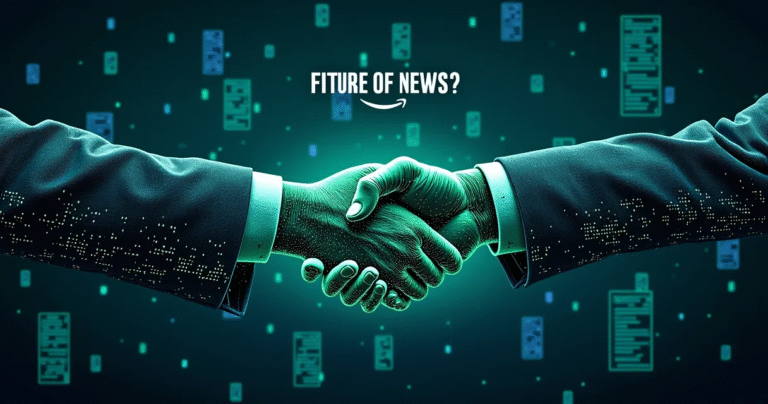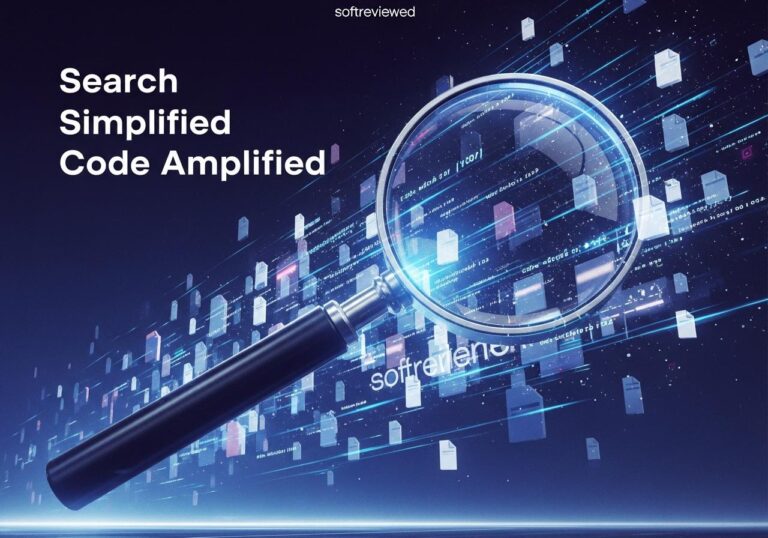NYT & Amazon: Historic AI Licensing Deal
A landmark agreement reshaping media-tech relationships in the AI era
First-Ever AI Licensing Deal for NYT
The New York Times signed its inaugural AI licensing agreement with Amazon, marking a strategic pivot to legally collaborate with AI companies while establishing precedent for future content licensing in the AI industry.
Featured Content & Platforms
Amazon gains access to NYT’s journalism, NYT Cooking, and The Athletic, integrating this premium content into Alexa, AI answers, and training large language models to enhance user experience across Amazon’s ecosystem.
Dual Legal & Partnership Approach
NYT continues its copyright lawsuit against OpenAI and Microsoft while forging revenue-sharing deals with Amazon, demonstrating a nuanced strategy of selective partnerships alongside legal protection of intellectual property.
Excluded Properties
Wirecutter (NYT’s product review site) remains outside the deal due to Amazon’s existing relationship with the platform, highlighting the complex commercial considerations in AI content licensing agreements.
Industry Shift in Content Licensing
Reflects broader publisher strategy: collaborate with select AI firms while litigating against others, establishing a new paradigm where media companies actively shape how their content is used in AI development.
In a move that’s sending ripples across both the media and tech worlds, The New York Times Company has announced its first-ever AI licensing deal, and the partner is none other than e-commerce and cloud computing behemoth, Amazon. This multi-year agreement signals a significant step for the storied news organization as it navigates the complex and rapidly evolving landscape of artificial intelligence. The deal allows Amazon to tap into the vast archives of The New York Times, including content from NYT Cooking and The Athletic, to train its AI models and enhance various customer experiences, most notably through its voice assistant, Alexa. 🤝
This development is particularly noteworthy given The Times' ongoing legal battles with other AI giants like OpenAI and Microsoft over alleged copyright infringement. So, what does this partnership entail, why is it happening now, and what could it mean for the future of journalism and AI? Let's break it down.
What's Cooking? The Nitty-Gritty of the NYT-Amazon AI Pact
At its core, this agreement allows Amazon to use The New York Times' content in two primary ways: for real-time display in consumer-facing products and for training its proprietary foundation models.
Content on the Menu: From Breaking News to Recipes and Sports 📰🍲🏆
The licensing deal isn't just about the front-page headlines. Amazon gains access to a broad spectrum of content:
- 📌 News Articles: Core journalistic content from The New York Times.
- 📌 NYT Cooking: Recipes and culinary content.
- 📌 The Athletic: In-depth sports coverage.
This diverse range of information will provide Amazon's AI with a rich dataset, spanning current events, lifestyle, and specialized sports reporting.
How Amazon Plans to Use the Times' Treasure Trove 💡
Amazon intends to integrate this content to deliver value to its customers. Key aspects include:
- ✅ Real-time Display: Summaries and short excerpts of Times content will appear within Amazon products and services, such as Alexa. When users ask Alexa for news updates or specific information, they might receive responses sourced from The Times.
- ✅ AI Model Training: The licensed content will be used to train Amazon's own AI models, helping them to better understand, process, and generate human-like text and information, particularly in the realm of news and factual reporting.
- ✅ Attribution and Links: Crucially, Amazon platforms will feature direct links back to the full articles on The New York Times' website. This ensures that The Times receives traffic and that users can access the original, complete journalistic work.
While financial terms haven't been disclosed, the emphasis from both parties is on expanding the reach of Times journalism and delivering enhanced experiences for Amazon customers. A joint statement highlighted that "The agreement expands the companies' existing relationship, and will deliver additional value to Amazon customers while bringing Times journalism to broader audiences."
The "Why Now?" Moment: Unpacking the Motivations
This deal arrives at a fascinating juncture, with generative AI technologies transforming how information is created and consumed. Both The New York Times and Amazon have strategic reasons for this collaboration.
For The New York Times: Valuing Journalism in the Age of AI 🧐💰
For The New York Times, this agreement is a proactive step to assert the value of its high-quality journalism in an AI-driven world. Meredith Kopit Levien, CEO of The New York Times Company, stated to staff that, “The deal is consistent with our long-held principle that high-quality journalism is worth paying for.” She emphasized that it aligns with their "deliberate approach to ensuring that our work is valued appropriately, whether through commercial deals or through the enforcement of our intellectual property rights.”
This move can be seen as:
- ➡️ A New Revenue Stream: Licensing content to AI developers offers a potential new way to monetize journalistic assets.
- ➡️ Setting a Standard: By striking a deal with a major tech player like Amazon, The Times is signaling how it believes content creators should be compensated for the use of their work in AI development.
- ➡️ Controlled Engagement: Unlike the unauthorized scraping of content (which The Times is fighting in court), this deal allows The Times to set terms, ensure attribution, and maintain a degree of control over how its journalism is utilized by AI.
For Amazon: Fueling the AI Engine with Premium Content 🚀📊
Amazon is in a fierce race with other tech giants to develop and deploy cutting-edge AI. Access to reliable, high-quality, and diverse content is paramount for training sophisticated AI models.
- ➡️ Enhanced AI Capabilities: The Times' content, known for its editorial standards and breadth, provides a valuable dataset for improving Amazon's AI, particularly for its Alexa voice assistant and other AI-powered services. This can lead to more accurate, relevant, and trustworthy responses from Amazon's AI.
- ➡️ Richer Customer Experience: Integrating Times content can directly benefit Amazon users, offering them access to credible news summaries, recipes, and sports information through various Amazon platforms.
- ➡️ Competitive Edge: In an AI landscape where data is king, securing a partnership with a prestigious content provider like The New York Times gives Amazon a distinct advantage.
You can explore more about Amazon's AI initiatives and how they might leverage such content partnerships on their official Amazon Science page.
A Tale of Two Approaches: Licensing with Amazon, Lawsuits Elsewhere ⚖️🤝
The New York Times' deal with Amazon stands in stark contrast to its ongoing legal actions. In late 2023, The Times filed a significant lawsuit against OpenAI (the creator of ChatGPT) and Microsoft, alleging widespread copyright infringement. The lawsuit claims these companies used millions of Times articles without permission to train their AI models, thereby devaluing The Times' work and creating competing products.
This dual strategy – suing some AI developers while licensing content to others – highlights a nuanced approach:
- ⛔️ Fighting Unauthorized Use: The lawsuits aim to establish legal precedents regarding the unauthorized use of copyrighted material for AI training and to seek compensation for past infringements.
- ✅ Embracing Controlled Partnerships: The Amazon deal demonstrates a willingness to collaborate when terms are mutually agreeable, compensation is fair, and attribution is guaranteed. It positions this partnership as a model for "acceptable use."
This strategy suggests The Times isn't anti-AI, but rather pro-fairness and pro-value for its journalism. It's drawing a line in the sand: use our content, but do it ethically and with compensation.
Expert Eyebrows Raised: What Are the Pundits Saying? 🤔💬

The announcement has, unsurprisingly, sparked considerable discussion among media analysts, tech commentators, and legal experts.
A Model for Monetization? 💰📈
Many see this as a potentially significant step for the news industry, which has long grappled with monetization in the digital age.
- Jeff Jarvis, a journalism professor and author, has often commented on the need for news organizations to find new models. While not directly commenting on this specific deal at the time of writing, his broader work suggests an openness to innovative approaches that respect journalistic value.
- Tech in Asia noted that "The NYT-Amazon deal joins a growing list of high-value AI licensing agreements that are reshaping media economics." They point out that such deals often include both training data access and content display rights, creating multiple revenue streams.
- Some analysts believe this could set a benchmark for future deals between content creators and AI companies, potentially forcing more tech firms to the negotiating table rather than relying on "fair use" arguments.
Lingering Questions and Ethical Considerations ❓😟
However, not all reactions are purely optimistic. Concerns and questions remain:
- Content Integrity: How will summaries and excerpts truly reflect the nuance of the original reporting? There's a risk of oversimplification or misrepresentation, even with links back to the source.
- Transparency: While financial details are often kept private, the lack of transparency can make it difficult to assess the fairness of such deals across the industry.
- The "Two-Tier" System: As highlighted by Tech in Asia, media companies seem to be creating a "two-tier system: authorized partners who pay for content access versus unauthorized AI companies they target with copyright infringement claims." Will this further consolidate power in the hands of a few large media players and tech giants?
- Impact on Smaller Publishers: Can smaller news outlets, which lack the negotiating power of The New York Times, secure similar beneficial deals? Or will they be left behind?
- Liz Ticong, a tech industry expert writing for eWEEK, pointed out the "complex — and sometimes contradictory — relationship with artificial intelligence" that The Times is navigating. She suggests that "By partnering only on its own terms and taking legal action when necessary, The Times is demonstrating how journalism can thrive in the face of AI."
What This Means for You, The Reader (and Your Alexa) 🧑💻🗣️
So, how will this partnership affect your daily consumption of news and information?
- 👉 Enhanced Alexa Experience: If you use Amazon Alexa, you might start noticing more detailed and sourced news updates, recipe suggestions, or sports summaries originating from The New York Times.
- 👉 Access to Summaries: You might encounter NYT-sourced summaries or excerpts in other Amazon products and services, designed to give you a quick overview before (hopefully) clicking through to the full article.
- 👉 Attribution: The promise of clear attribution and links back to The Times is key. This means you should always know when information is coming from The Times and have an easy way to access the original source.
- 👉 Quality of AI Responses: Over time, as Amazon's AI models are trained on high-quality journalistic content, the overall quality, accuracy, and reliability of information provided by Amazon's AI services could improve.
The goal, from a consumer perspective, is more seamless access to credible information integrated into the digital tools many of us use daily.
The Bigger Picture: Reshaping the Media and AI Terrain 🗺️
This New York Times-Amazon deal isn't just about two companies; it's a significant marker in the evolving relationship between media and artificial intelligence.
Setting a Precedent: Will Others Follow Suit? 🚶♂️🚶♀️🚶
Other major publishers have already started inking deals with AI companies. For instance, News Corp (owner of The Wall Street Journal, The Times of London, etc.) and Axel Springer (owner of Politico, Business Insider) have also announced partnerships with OpenAI.
| Publisher | AI Partner(s) | Focus of Deal |
|---|---|---|
| The New York Times | Amazon | Content for AI training, real-time display |
| News Corp | OpenAI | Content for AI training, display in products |
| Axel Springer | OpenAI | Content for AI training, summaries in ChatGPT |
| Associated Press | OpenAI | Access to news archive for AI model training |
This trend suggests a move towards a licensing model where AI developers pay for access to quality content. The NYT-Amazon deal, given The Times' influence and its concurrent litigation, adds significant weight to this emerging standard.
The Evolving Dance Between Content Creators and Tech Titans 💃🕺
The relationship between media companies and large technology platforms has always been complex, often swinging between symbiotic and adversarial.
- Early Days: Initial resistance to aggregators like Google News eventually gave way to licensing and referral traffic arrangements.
- The AI Challenge: Generative AI presents a new, arguably more profound challenge, as AI can potentially replace rather than merely link to original content.
- A New Equilibrium? Deals like this one might signal a path towards a new equilibrium, where tech companies acknowledge the value of original content for AI development, and media companies find new ways to monetize their work and reach audiences.
However, the power dynamics remain a critical consideration. Tech giants have immense resources, and the terms of these deals will be closely watched to see if they genuinely represent a fair exchange of value.
Charting the Uncharted: Where Does This Path Lead? 🧭
The long-term implications of such partnerships are still unfolding. What could we see down the line?
- 🔮 More Sophisticated AI News Tools: AI trained on diverse, high-quality news content could lead to more nuanced news summarization tools, personalized news feeds, and even AI-assisted investigative journalism (used responsibly by newsrooms, of course).
- 🔮 Shifting Consumption Habits: If users increasingly get their news from AI assistants or AI-generated summaries, how will this impact direct traffic to news websites and the deeper engagement that full articles provide?
- 🔮 The Role of Copyright: Ongoing legal battles and future licensing deals will continue to shape the interpretation of copyright law in the context of AI. Will current laws prove adequate, or will new legislation be needed?
- 🔮 Ethical AI Development: Partnerships with reputable news organizations could push AI developers towards more ethical sourcing of training data and greater emphasis on accuracy and attribution.
This journey is just beginning, and the path ahead will likely involve more negotiation, innovation, and perhaps a few more legal skirmishes.
Final Thoughts: A Calculated Leap into the AI Unknown 🏁
The New York Times' licensing agreement with Amazon is more than just a business transaction; it's a statement. It underscores a belief in the enduring value of quality journalism and a pragmatic approach to engaging with the powerful forces of artificial intelligence. By choosing to partner with Amazon under specific terms, while simultaneously challenging other tech companies in court, The Times is attempting to carve out a sustainable future for itself and, by extension, influence the broader media industry.
Will this strategy pay off? Will it lead to a fairer ecosystem where content creators are adequately compensated and AI development proceeds ethically? Only time will tell. But for now, this deal represents a significant, calculated leap into the AI unknown, one that many will be watching with keen interest. It’s a clear signal that while the printing presses may have evolved, the value of well-reported, credible information remains a critical currency in our increasingly AI-driven world. ✨







